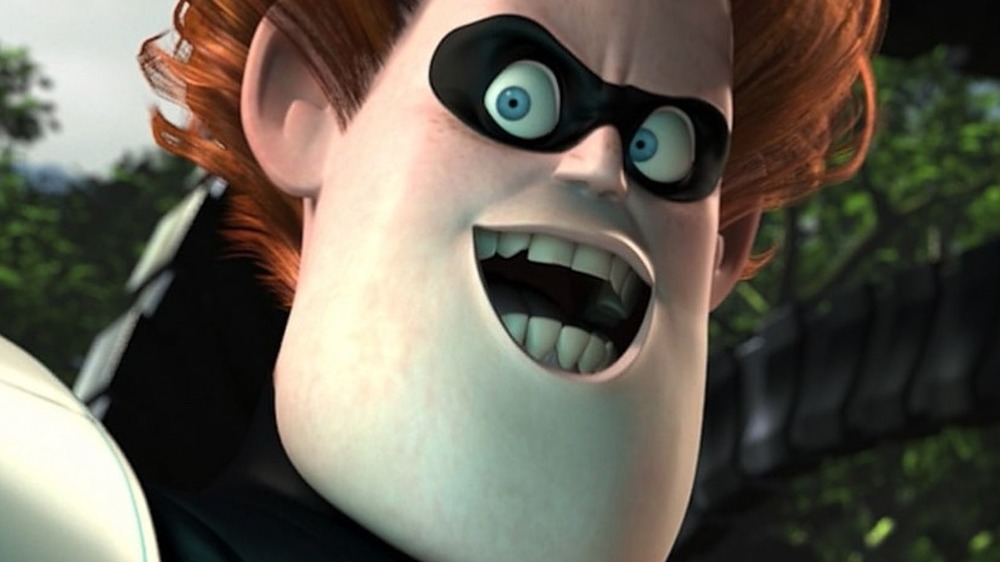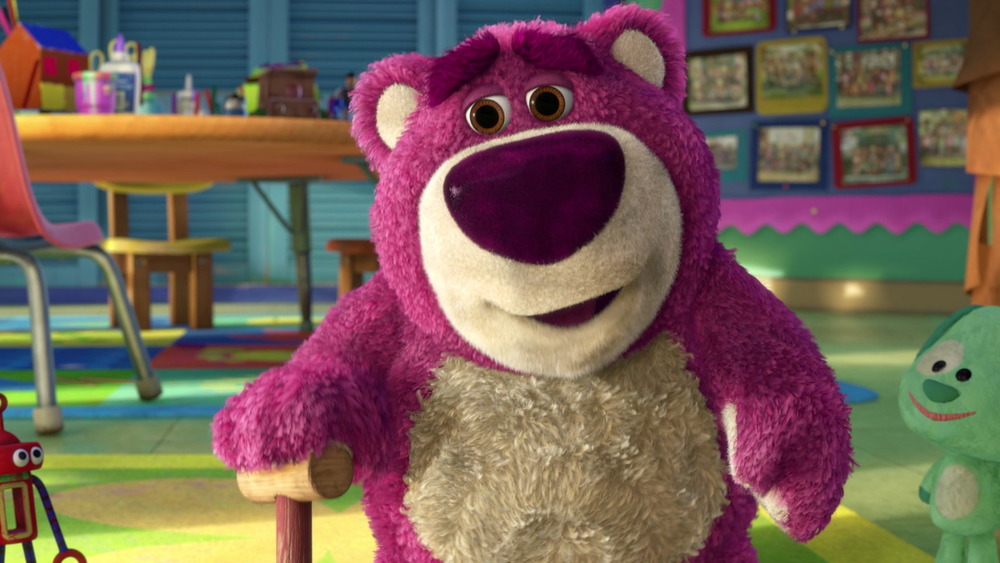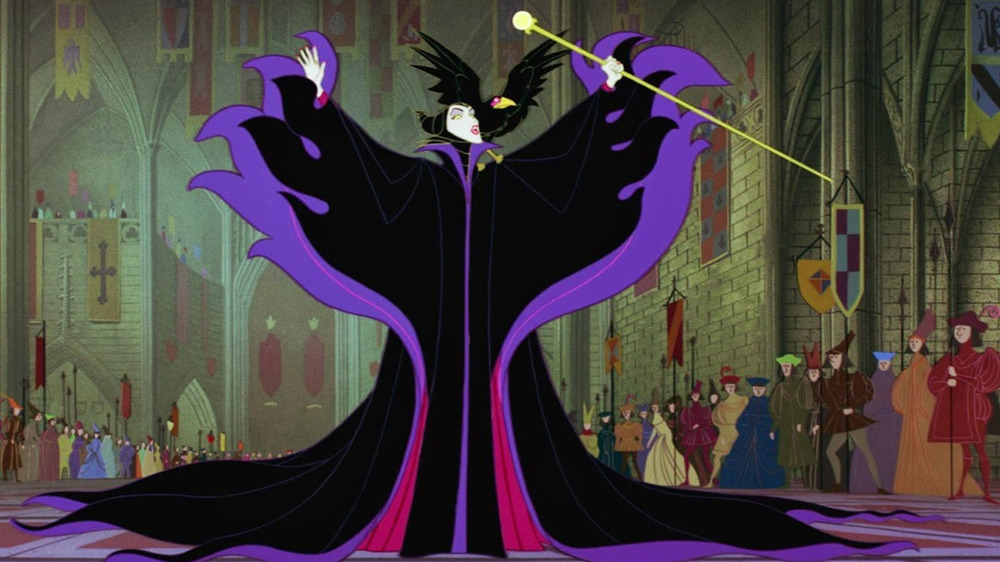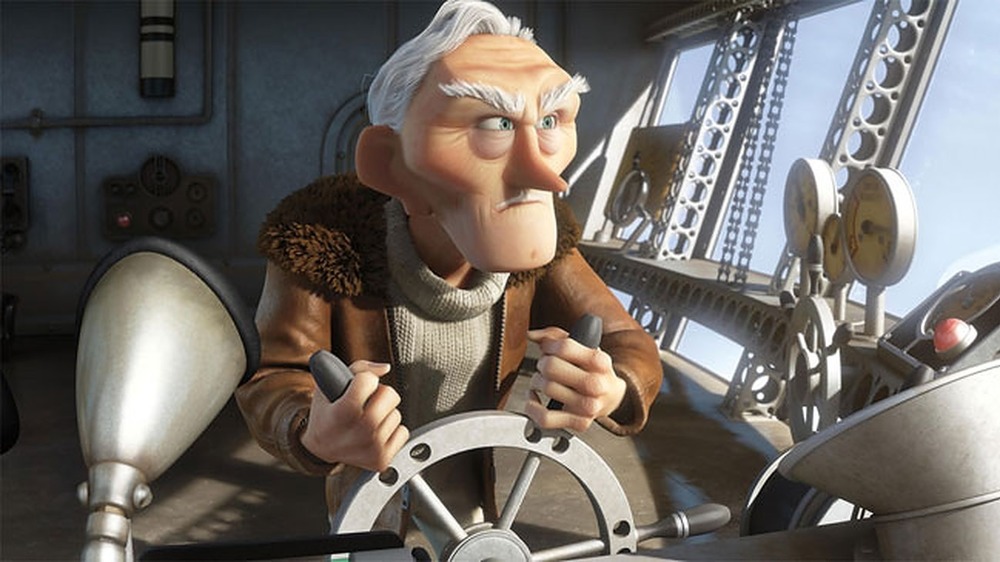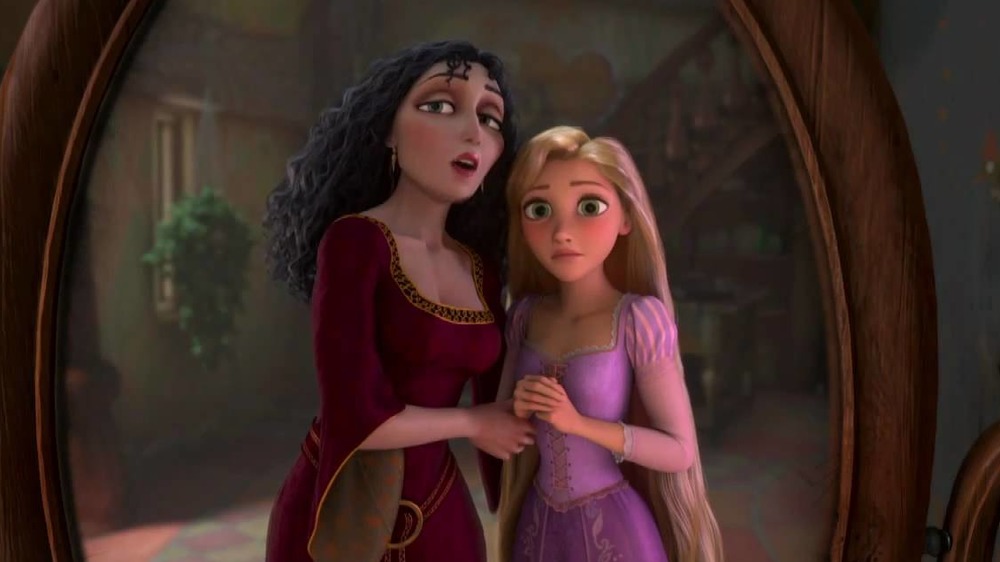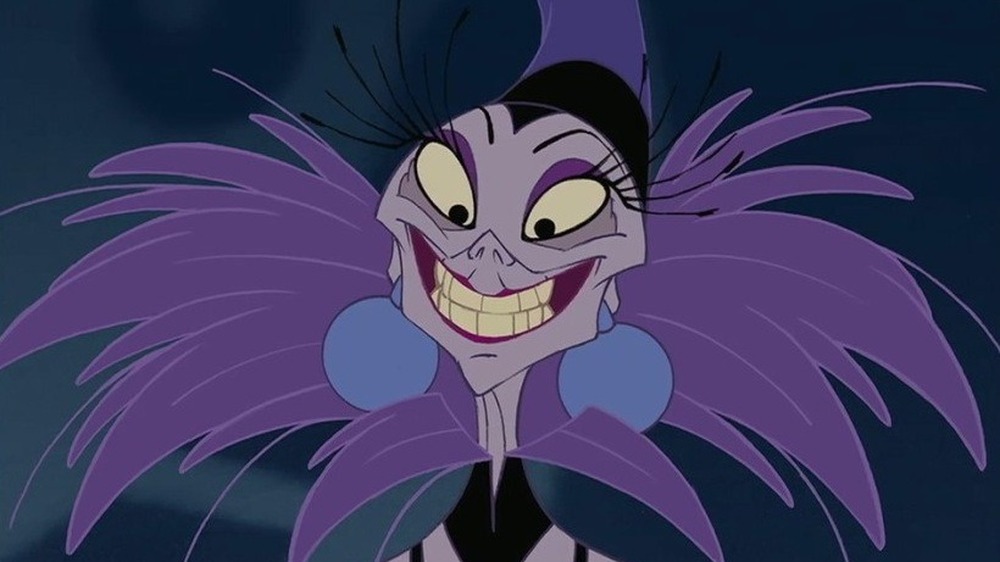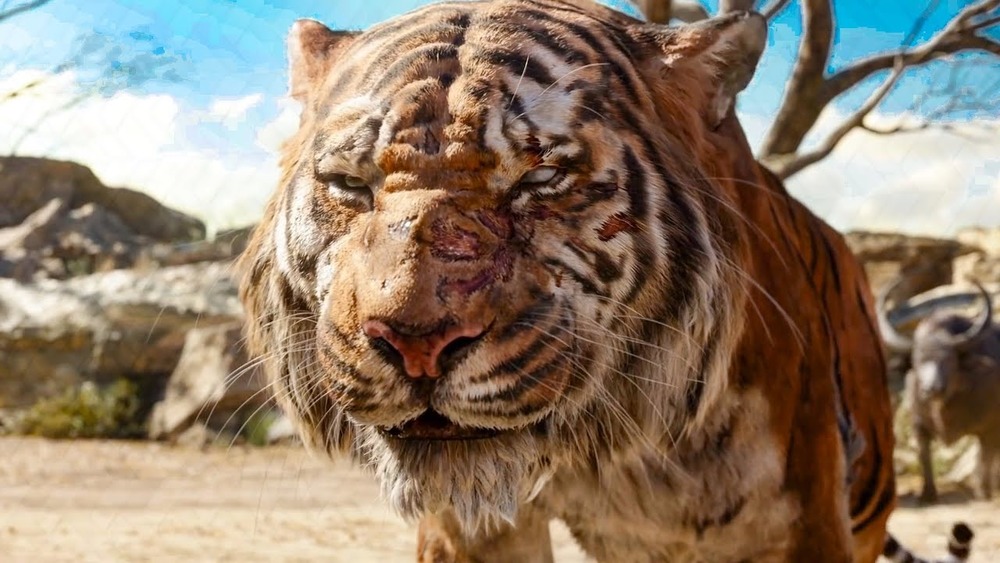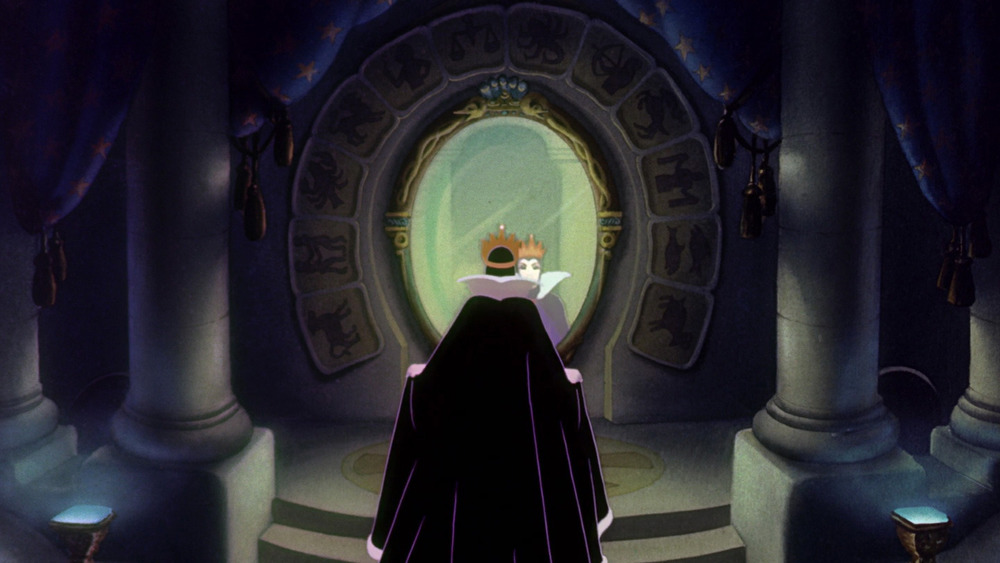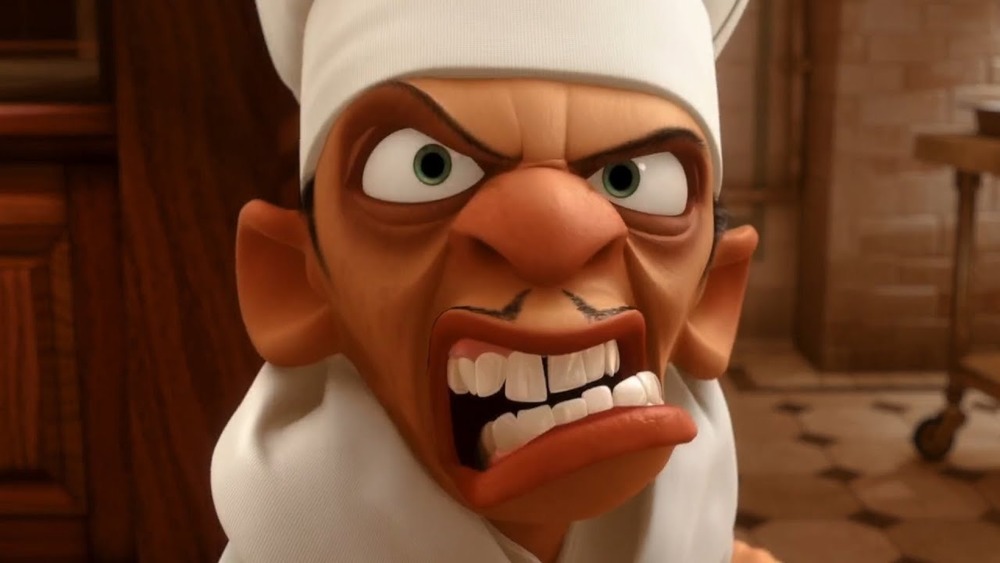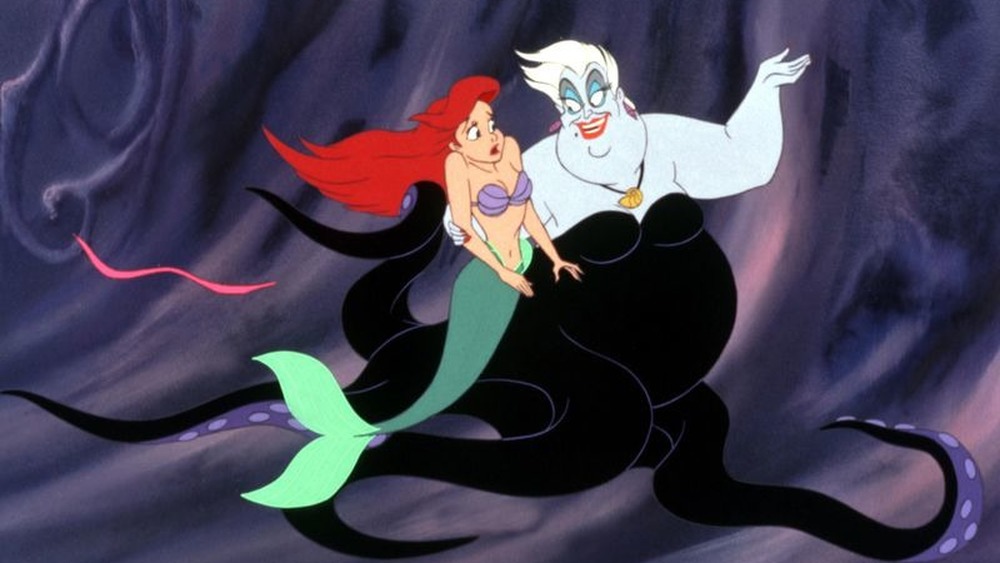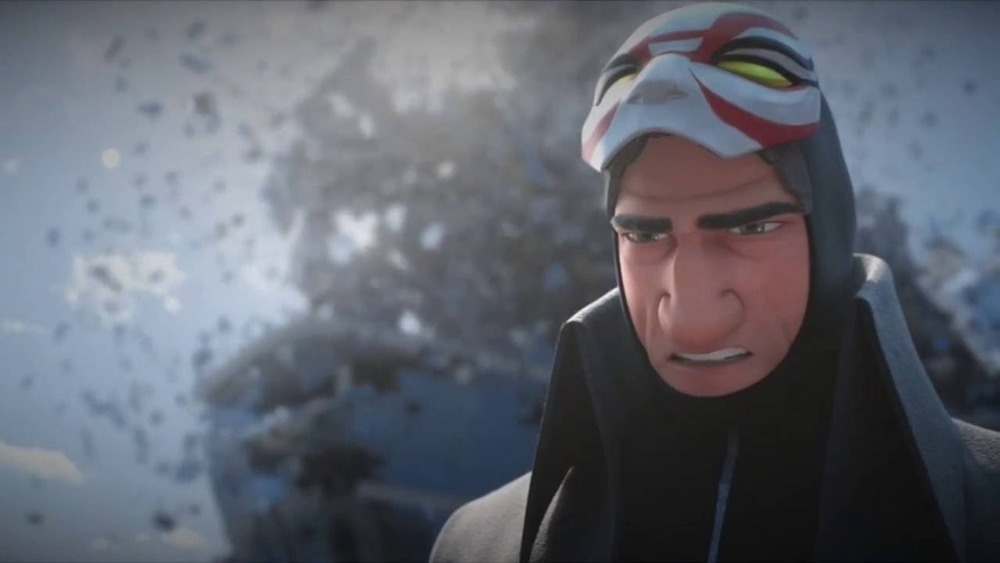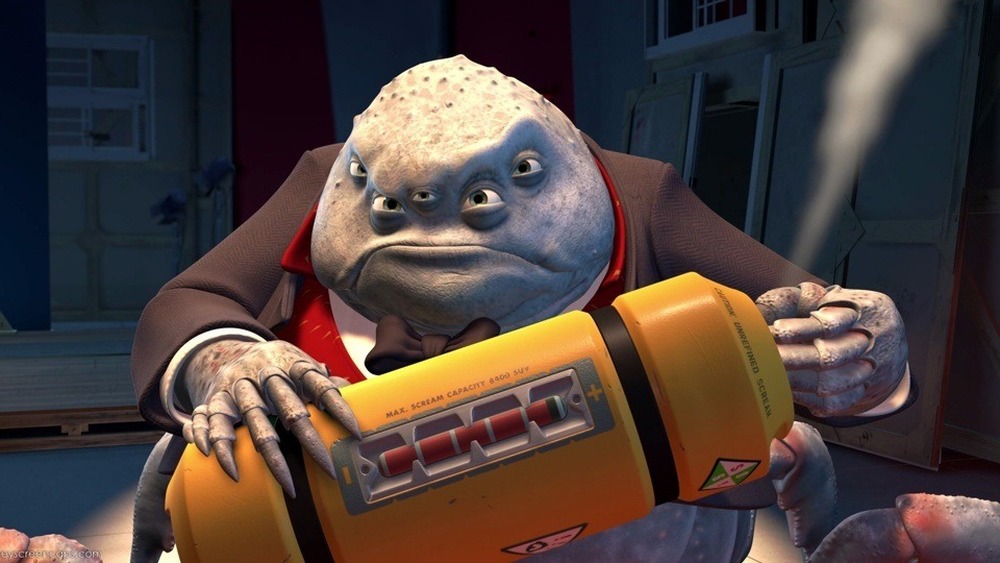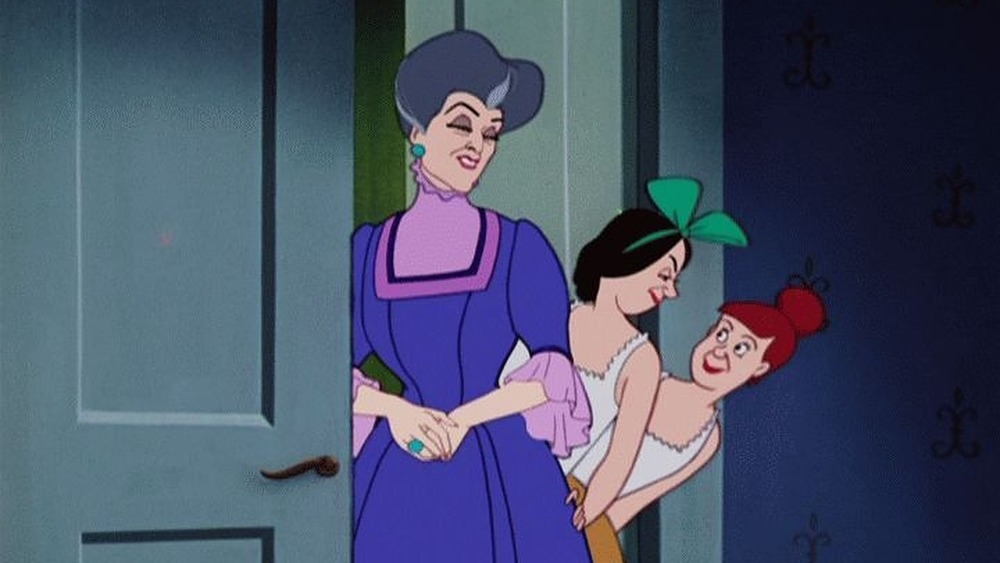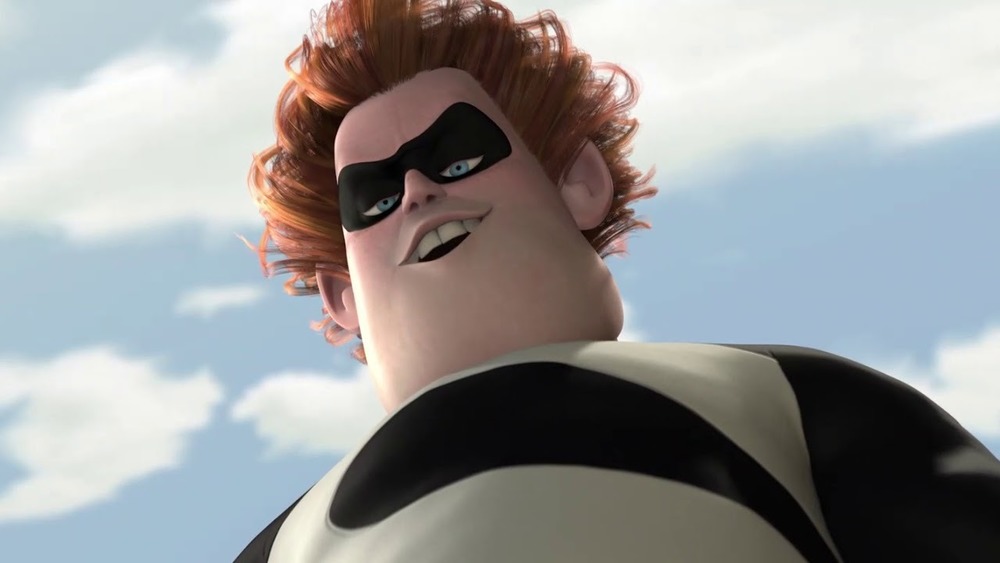Disney-Pixar Villains Who Make Good Points
Many children's movies are full of life lessons. Usually, they come from the wise words or humbling experiences of a hero or mentor — someone parents would want their kids looking up to. Disney and Pixar movies are no different. It's easy to think of a number of heroes right off the bat who fit the bill. There's Belle in Beauty and the Beast, who reminds us that it's not looks that matter but what's underneath. There's Marlin in Finding Nemo, who teaches us to step out of our comfort zones. And there's Mr. Incredible in The Incredibles, who shows us that we shouldn't hide who we are and that there's great reward in helping others.
Each of these heroes, in the course of teaching lessons (and learning their own), must confront all sorts of villains and obstacles. You'd expect these baddies to be the antithesis of each hero, and if the good guys teach us valuable lessons, then the villains probably offer the opposite — cynical worldviews and malicious advice. But in some cases, you'd be wrong. In some cases the villains, despite their misguidedness, actually offer up some interesting opinions. From world-weary toys to insightful supervillains, here are some Disney-Pixar villains who make good points.
This Pixar villain knows that reality bites (it doesn't hug)
"Lotso" certainly has lots of something in 2010's Toy Story 3, but it isn't hugs. Instead, this strawberry-scented bear is stuffed with sadism and manipulation. His brand name, "Lots-o'-Huggin' Bear," soon proves to be a comical misnomer. But his name isn't tragically inaccurate just because Lotso doesn't give out all the hugs his name suggests. It's tragic because he's cynical and abusive due to the fact that he didn't receive the hugs he expected in his youth, as a toy whose sole purpose was to love and be loved.
Though he's become a sadist and takes out his pain on others in the daycare, on some level, Lotso is really just trying to give the other toys a dose of reality to counter their idealistic worldviews. While not every kid will abandon their toys in such traumatic fashion as to leave them with the sentiment that all toys are just "trash waiting to be thrown away," it's a reality that children slowly become disinterested in their toys as they grow up. This can be a terrible shock to an unprepared toy. Lotso's realism is something that would've been useful to the less-experienced characters as a healthy dose of practicality ... well, if he hadn't taken it so far that it became bleak and barbaric.
Don't sleep on the invitations
Too much rejection can make you go insane, but what happens if you get rejected, and you were already a little bit crazy to begin with? This is something the royal family probably should've considered before they declined to invite Maleficent to Aurora's birthday party in 1959's Sleeping Beauty.
Granted, there are varying accounts as to how evil she was before the day of the party, like a more forgiving portrayal of her broken past in 2014's Maleficent. Regardless, it was a bit of a snub for the royals to refuse to invite her just because she didn't present as benevolently as Flora, Fauna, and Merryweather, her fairy rivals (the latter of whom informs her that she wasn't invited to the party because she "wasn't wanted"). If they'd been less judgmental, more inclusive, and had just invited her to the party, maybe all of the Aurora drama wouldn't have happened. It hurts not to be invited, especially because you've been put into a box by someone who's passed judgment on you. (Her reaction was a bit much, though.)
The scientific method to the madness
You should believe in the wonder of the unknown. Who could argue with that? Of course, Charles Muntz somewhat lost sight of where he was originally coming from as he descended into madness, but the villain of 2009's Up really made a good point before his work and subsequent ridicule drove him crazy.
He'd discovered something amazing — a new species of bird — and he wanted people to experience it, to believe in it. That's really all he wanted to prove before he grew more and more delusional. He just wanted people to have faith in discovery and to experience curiosity about the wonderful things in store for an avid explorer and friend of the Earth. But instead, they called him a fraud and discredited him in public, sending him spiraling into violence, paranoia, and destruction.
At the end, Charles Muntz, the childhood hero of Mr. Fredrickson, was still hunting for the bird that everyone had told him, disdainfully, didn't exist. But he'd also begun killing any other explorers he met along the way, thinking they were there to find it, too. If his colleagues and the public at large had been a little more open-minded, he could've used this rabid dedication to serve the scientific community and the world. We could all do with a little more curiosity and wonder, rather than assuming we've already discovered all the answers we need.
This Disney villain thought mother knew best
Despite her wickedness, selfishness, and vanity, Mother Gothel's relationship to her captive adopted daughter in Tangled taught Rapunzel, in a roundabout way, to take care of herself. Though her doting, overprotective motherhood was primarily an act, Gothel did have some measure of care for Rapunzel, despite the majority of her actions in this 2010 film (even the "nice" ones) being abusive and manipulative.
In fact, some of her admonitions and instructions actually helped make Rapunzel into a strong and self-sufficient young woman. Gothel didn't tolerate mumbling, for instance, and forced Rapunzel to be direct in her communication instead of beating around the bush. As a result, Rapunzel grew into a self-assured woman who was capable of asserting herself in the world of men.
Gothel gave Rapunzel a lot of responsibility at home, requiring her to become resourceful and confident in her own abilities. (She definitely knows her way around a cast-iron skillet.) The old woman could've just thrown Rapunzel in a dungeon and focused entirely on herself, but she took care of her and helped her grow. It's no excuse for the way she acted, but under other circumstances, many of these are good lessons to learn.
Loyalty is groovy
Who are the characters who taught you the most about loyalty? A few that may first come to mind are Elsa and Anna in Frozen, who stood by each other even when their parents died and others betrayed them. And then there's Bing Bong from Inside Out, who remained so loyal to Riley that years after she'd forgotten her imaginary friend, he was willing to fade from existence if it meant helping her. But one character who never gets credit for her loyalty (because it was overshadowed by her villainy) is Yzma from 2000's The Emperor's New Groove.
Ultimately, though, it was her loyalty that turned her sour because it was never properly appreciated. Instead, she was unceremoniously fired after she'd spent her whole life raising Kuzco ... who was completely unfit to do his job in the first place! He was a careless, egomaniacal emperor who wanted to destroy a family's home to put his own resort on top of it. For much of the film, he's just as much of a villain as she is. He only becomes the "hero" after a lot of growing up, which supports Yzma's valid point that he shouldn't have been on the throne with his original ego and attitude.
And an even better point is that loyalty should be valued more highly. Who could blame Yzma for deciding to take power into her own hands after loyalty and servitude took her nowhere?
A Disney villain who's secretly into Khanservation
In both the 1967 and 2016 versions of The Jungle Book, Shere Khan is the chief antagonist. He's formidable and aggressive, and in the more recent version, where he's voiced by Idris Elba, the tiger is visibly scarred, which adds to his imposing presence. He earned his scars from humans and fire, both of which he's deeply fearful of, along with the guns that humans often carry. And honestly, he's not alone. Plenty of people are afraid of all of these things, too.
So while in the film, it looks like the beast is a truce-breaking predator bent on killing a little boy, really, he's just trying to preserve his jungle ecosystem from the threat of man. Yes, there's a little bit of vengefulness involved. Mowgli is only a man-cub, after all, and he definitely doesn't have access to any guns. He doesn't represent as much of a threat as some of his brethren, so Shere Khan is mostly standing on principle rather than necessity. But still, the bottom line is that he makes a proven point about the havoc man can wreak on the environment. Shere Khan is just a conservationist.
Toxic standards vs. poison apples
It's kind of an uphill battle when you're not known by your name but simply by some title like "Evil Queen" or "Evil Stepmother." No one is going to expect you to make any good points. Still, the Evil Queen from 1937's Snow White gives a valid voice to the struggles many women face, whether you call them evil or not.
In one of Disney's very best films, the Evil Queen gazes into a Magic Mirror day by day (while relegating Snow White to the kitchen) and asks it who's the fairest in her kingdom. She's deeply afraid that, one day, Snow White may grow to surpass her in beauty. When she does, that's when the Evil Queen truly earns her name.
But while you should really address your insecurities personally rather than feeding poison apples to people, the Evil Queen basically symbolizes the double standard women face as they age. It's scary to grow older for anyone, but that's extra true for women (and especially women in Hollywood) because it's widely known that they're subject to a harsh and unfair "sell-by date" idea as far as being attractive or marketable for roles. The Queen was just acutely aware that power, especially for queens — whose husbands have been known to kill them off so they can marry a replacement– can indeed revolve around beauty (even though it shouldn't).
This Pixar villain doesn't have a moral code, but he's all about health codes
Ratatouille's Chef Skinner looks like a bad guy. At his best, when he's smiling, he looks conniving and sinister. At his worst, he looks like he's going to explode with rage. He oscillates between these two states frequently, and there's no arguing that he was an evil, money-mad guy who wanted to take advantage of a dead man's legacy. Most of his perspectives were evil, and from a rat's point of view, they were extra evil. He actually shares his last name with a psychologist, B. F. Skinner, who famously did experiments involving rats.
But the unpleasant chef did make one important point — rats are gross. That doesn't mean they deserve to be harmed or killed. And you can also think they're kind of cute (though it's hard to find a living rat as cute as the animated Remy) or even keep them as pets as some people prefer to do. And this doesn't mean that you shouldn't follow your dreams like Remy did ... but come on. Rats do not belong in the kitchen. For all the evil things he did, we can't argue with Skinner on that point.
Ursula gave Ariel a voice ... sort of
Taking advantage of someone when they're vulnerable is a pretty evil move, and that's exactly what Ursula does to Ariel in 1989's The Little Mermaid. But did you ever stop to think about why Ariel is in such a vulnerable position that Ursula can do this so easily? She's looking for support and guidance in following her dream and becoming the person she wants to be. The first place she looked was at home, with her father, Triton, and he wouldn't even hear her out.
If he didn't want her wandering into harm's way, maybe he should've listened. You should at least give kids a chance at their dreams and at becoming their own person. Sure, Ariel's dream was incredibly misguided, and Triton would've probably wanted to steer her away from that path in the end, but he could've done so in a way that didn't also steer her away from her support system. Ursula really took advantage of Ariel's desires and vulnerability for her own gain, but at least she listened to her. Ironically, she gave her a voice (before she took it away). If Triton had done that, he wouldn't have lost his daughter.
Yokai knew the price of progress
In 2014's Big Hero 6, Professor Robert Callaghan was a renowned scientist who wanted nothing more than to make the world a better place through innovations in robotic technology. Not only that, but he mentored other promising young scientists and contributed to a generation of problem-solvers and world-changers.
But all this innovation came at a personal cost. While working on a portal project that would change transportation as we know it, Callaghan's daughter was lost in one of the portals. Callaghan swore revenge on the tech CEO behind the project, and as a result, he soon spiraled into a madness fueled by his grief and thirst for retribution. Though he went much too far, becoming the supervillain Yokai in response to his loss, it's worth remembering that progress shouldn't come at the price of the people we care about. Callaghan knew that lives were more important than innovation ... well, right up until he started trying to murder people.
Survive at all costs
Mr. Waternoose in Monsters, Inc. was a good guy who was somewhat forced into an antagonistic position by circumstance. He certainly wasn't as decidedly vile as the monster who used him, Randall. In fact, in the beginning of the 2001 film, Waternoose was a really nice guy. Not only was he always pleasant to his employees, but he had a paternal relationship with Sulley, whom he mentored as a "scarer." However, he was forced into his villainous role as a result of a crisis, as he was driven to more and more desperate ends to keep his company afloat. As a result, he developed a more genuinely dark side.
In the beginning, though, and deep down, the guy just wanted to keep the monster world and the members of his company safe and separate from the dangerous world of humans. He clearly cared a lot about monsters, as is evident in his fatherly nature and mentorship of Sulley. He never harbored any of the traditional villain motivations like greed or ambition or revenge. He just wanted to survive.
A bad guy who puts her own children first
We think of good and evil as absolutes, but really, they're as subjective as any other adjectives we use to describe our personal experiences with someone or something. Though her stepmom certainly was evil from the point of view of Cinderella's titular heroine, the Evil Stepmother's own children no doubt thought that she was just the opposite. She married again so she could provide for them. She got them into the ball and got them all dressed up for the chance to meet the prince (and made sure that their prettier stepsister was no competition). She made them feel beautiful and cared for.
The Evil Stepmother's daughters were her priority. She may have been an evil stepmother, but she was a good mother. She behaved the way she did because, as a serially single mom who'd been widowed multiple times and left to fend for herself, she'd spent her whole life doing everything for her children in order to give them advantages. Ultimately, the point she was making was "family above all," and while, yes, it was cruel not to have included Cinderella in that family, she was just trying to provide for her own.
A Pixar villain obsessed with power, superpower, and privilege
The supervillain Syndrome in The Incredibles was introduced in the 2004 film as a little kid named Buddy, whose well-meaning attempts at aiding his idol, Mr. Incredible, actually ended up foiling him. When Mr. Incredible rejected him, Syndrome went insane and launched a vendetta — not just against his former role model but all "supers" everywhere. In addition to murdering crimefighters one by one, Syndrome also developed a slew of technologies that would allow anyone to have "powers" of their own, even if they weren't born with them. As he infamously put it, "When everyone's super, no one will be."
At the end of the day, he was really making a point about privilege and leveling the playing field. No one should be so self-important that they can completely disregard another person like Mr. Incredible did to Buddy. No one should have so much power that life is markedly easier for them than it is for everyone else.
And on the human side, no one should feel powerless and unable to protect themselves in a world where some (good and bad) are exponentially mightier. This is a point that deserves to be made! Unfortunately, Syndrome came to the conclusion as a result of a grudge, not the humanitarian orientation you'd traditionally tie to a message of equality. And he took this conclusion so far that he ended up hurting more people than he helped.
